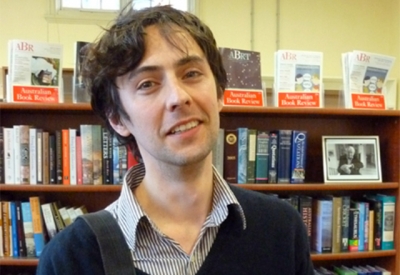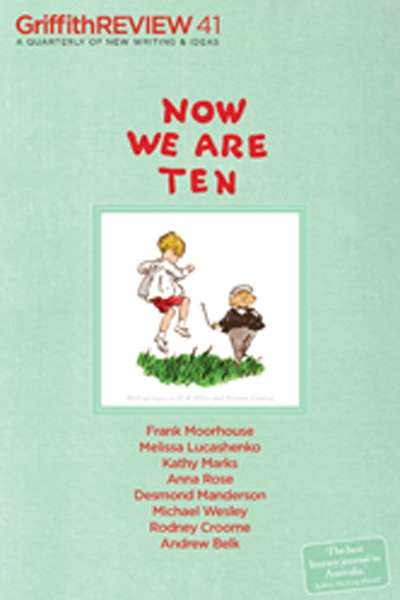Accessibility Tools
- Content scaling 100%
- Font size 100%
- Line height 100%
- Letter spacing 100%
Andrew Fuhrmann
The ABR Podcast
Released every Thursday, the ABR podcast features our finest reviews, poetry, fiction, interviews, and commentary.
Subscribe via iTunes, Stitcher, Google, or Spotify, or search for ‘The ABR Podcast’ on your favourite podcast app.
‘Where is Nancy?’ Paradoxes in the pursuit of freedom
by Marilyn Lake
This week on The ABR Podcast, Marilyn Lake reviews The Art of Power: My story as America’s first woman Speaker of the House by Nancy Pelosi. The Art of Power, explains Lake, tells how Pelosi, ‘a mother of five and a housewife from California’, became the first woman Speaker of the United States House of Representatives. Marilyn Lake is a Professorial Fellow at the University of Melbourne. Listen to Marilyn Lake’s ‘Where is Nancy?’ Paradoxes in the pursuit of freedom’, published in the November issue of ABR.
Recent episodes:
Young Eliot: From St Louis to The Waste Land by Robert Crawford
To highlight Australian Book Review's arts coverage and to celebrate some of the year's memorable concerts, operas, films, ballets, plays, and exhibitions, we invited a group of critics and arts professionals to nominate their favourites – and to nominate one production they are looking forward to in 2016. (We indicate which works were reviewed in Arts Up ...
Leading arts critics and professionals nominate some of their favourite performances for 2014.
... (read more)Books of the Year is always one our most popular features. Find out what our 41 contributors liked most this year – and why.
... (read more)It is a romance of simplicity and much tenderness. There are two people, and they are in love. Their love is tested, but hope triumphs in the end.
Anne (Helen Morse) is in her sixties, a grandmother, still doing piece work to support herself while babysitting for her daughter. She begins a relationship with Majid (Yomal Rajasinghe), a much younger man of a d ...
Dozens of critics impress me, but the critic who made the greatest impression is John Dryden. Everything began with Dryden. It was his Essay of Dramatic Poesy (1668) that first inspired me to write about the theatre. Through Dryden I discovered a way of doing criticism that was more than description and analysis; here was criticism that was also the dramatisation of a contest and an exploration of competing positions; a form that was alive, like art itself, and where honest enquiry meant more than judgement.
... (read more)Goats are ubiquitous in the work of Patrick White. Start looking for them and they appear everywhere, staring out, page after page, with wise, tranquil eyes, pellets scattering like secrets into dust.
White bred goats, of course, Saanen goats, or tried to, while living at Castle Hill, and it is clear that the goat-mind made a profound impression. ‘One day I’m going to write a novel about goats with human beings to make it appear more “moral”,’ he wrote to his American publisher in 1953, ‘but only to enjoy the great luxury of writing about the goats.’ And he nearly did, two years later, when he wrote of a doomed explorer coming upon a desolate interior populated only by wild goats, descendants of a fabled Ur-goat:
... (read more)Goats are all but ubiquitous in the work of Patrick White. Start looking for them and they appear everywhere, staring out, page after page, with wise, tranquil eyes, pellets scattering like secrets into dust.
White bred goats, of course, Saanen goats, or tried to, while living at Castle Hill, and it is clear that the goat-mind made a profound impression. ‘ ...
Andrew Fuhrmann’s acclaimed Fellowship essay on the theatre of Patrick White closely examines these brilliant, problematic plays and draws on interview material with key directors closely associated with White.
... (read more)



